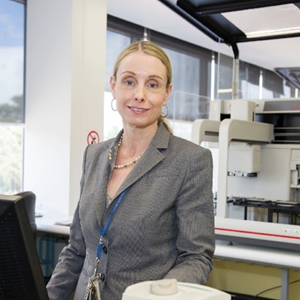Unravelling drug hypersensitivity
Areas of research
Drug hypersensitivity
Lead researchers

Professor Simon Mallal
View staff profile
Professor Elizabeth Phillips
View staff profile
Professor Elizabeth Phillips is leading the Drug Hypersensitivity Research Group to investigate the genetics and mechanisms behind drug hypersensitivity.
What was the need for this project?
Drug hypersensitivity affects people from all walks of life and can cause significant financial burden to patients, families and global healthcare services. In severe cases, such as Stevens-Johnson syndrome and toxic epidermal necrolysis and drug reaction with eosinophilia and systemic symptoms, it leads to death in up to 25 percent of patients, as well as long-term physical and mental health disability.
In the case of abacavir, a widely prescribed HIV drug, it was causing a potentially fatal hypersensitivity in up to eight per cent of the population that was often confused with other infections and HIV related illnesses.
How the project was completed
The team led by Professor Phillips and Professor Mallal designed innovative and cost-effective genetic assays, and conducted a randomised blinded clinical trial, that provided conclusive evidence that abacavir hypersensitivity could be prevented by pre-prescription screening for the HLA-B*57:01 gene. The discovery that these life-threatening reactions were strongly associated with HLA genes has now led to new discovery and translation in clinical research and care.
Results and achievements for this project
Since 2008, HIV patients globally are now screened for the HLA-B*57:01 gene prior to abacavir treatment, as part of guideline-based therapy. This has already prevented an estimated 125,000 people from experiencing adverse reactions to the abacavir drug. The team’s research has created a roadmap from discovery to translation of precision medicine techniques like pre-prescription genetic screening into routine clinical care.
Lead researchers

Professor Simon Mallal
View staff profile
Professor Elizabeth Phillips
View staff profileAreas of research
Drug hypersensitivity
Lead researchers

Professor Simon Mallal
View staff profile
Professor Elizabeth Phillips
View staff profile